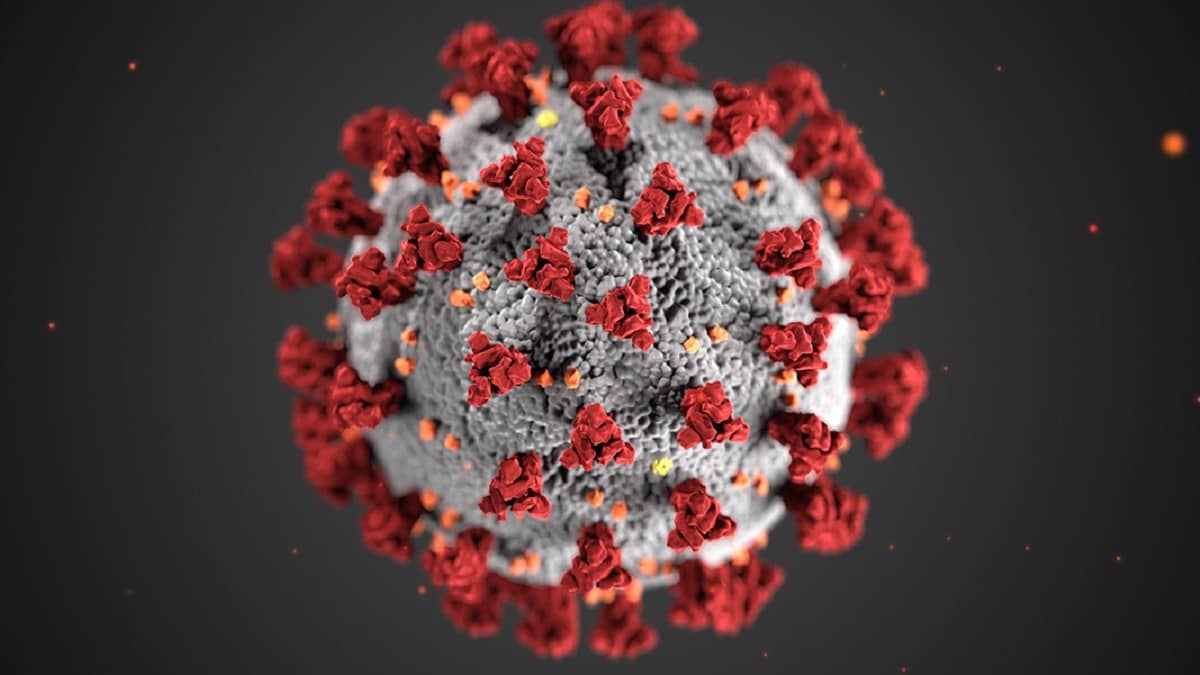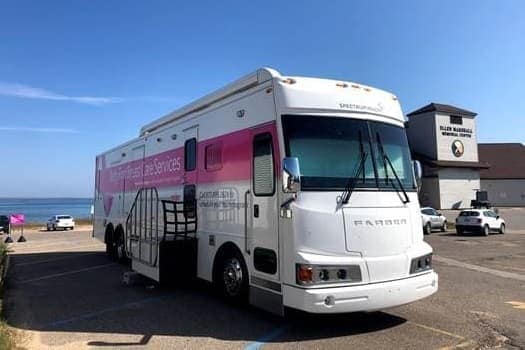At a glance
CDC offered guidance on how people with cancer can lower their risk of getting COVID-19, shared stories of cancer survivors who were diagnosed and treated during the pandemic and conducted research to find out how the pandemic affected cancer screening.

Overview
If you have cancer, COVID-19 can make you very sick. Treatments for many types of cancer can weaken your body's ability to fight off infections. Studies show that having a history of cancer may also increase your risk of serious illness and death from COVID-19.
One study looked at COVID-19 and cancer deaths. Findings from the study show that:
- Many people with cancer died due to COVID-19 and other diseases during the pandemic. A higher number of deaths occurred during peaks in COVID-19 infections.
- In 2021, a higher percentage of cancer deaths with COVID-19 as the underlying cause occurred among non-Hispanic American Indian and Alaska Native people, Hispanic and Latino people, and non-Hispanic Black people compared with members of other racial and ethnic groups.

Studies show effects on cancer screening
Many preventive services, including cancer screenings, were put on hold because of the pandemic. Scientists in CDC's Division of Cancer Prevention and Control have done research to find out how the COVID-19 pandemic has affected cancer screening.
One study looked at whether COVID-19 test positivity was linked to changes in cancer screening among women in CDC's National Breast and Cervical Cancer Early Detection Program. The study found that:
- During April 2020, breast and cervical cancer screening declined by 87% and 84%, respectively, compared with the previous 5-year average for that month.
- Some states were able to screen as many people during the pandemic as they did before the pandemic. Further studies will be done to find out how.
Another study on CDC's National Breast and Cervical Cancer Early Detection Program looked at breast and cervical cancer screening by race and ethnicity. From January through June 2020, the largest decreases in screening were among American Indian and Alaska Native women for breast cancer screening (98% decline) and Asian and Pacific Islander women for cervical cancer screening (92% decline), compared with the previous 5-year averages.
Previous studies have shown that breast cancer deaths among women in the United States have dropped, but non-Hispanic Black women have higher death rates. CDC scientists conducted a study to look for changes in these trends. They found that:
- Overall, breast cancer deaths decreased from 1999 to 2020. But rates decreased less in recent years, from 2008 to 2020, than they did from 2002 to 2008.
- Compared to women in other racial and ethnic groups, non-Hispanic Black women had the highest breast cancer death rates.
Another CDC-authored study found that cervical cancer screening dropped 80% among about 1.5 million women in the Kaiser Permanente Southern California network during California's stay-at-home order.
Guidance to prevent COVID-19 and other illnesses
CDC offers guidance on what cancer survivors, their families, and caregivers can do to lower their risk of getting COVID-19 and other illnesses.
People with Certain Medical Conditions explains that some people who have a weakened immune system are more likely to get sick with COVID-19 or be sick for a longer period. This includes some cancer patients.
Preventing Infections in Cancer Patients explains how cancer patients can avoid life-threatening infections during chemotherapy treatment. People with cancer who are treated with chemotherapy are more likely to get infections because cancer and chemotherapy can damage their immune system.
Programs overcome challenges to cancer screening
Despite the challenges, CDC-funded programs found ways to provide cancer screening during the COVID-19 pandemic. Some of this work is highlighted here.

- The Inter-Tribal Council of Michigan started the Three Fires Cancer Consortium to help American Indian people in the state get services that help prevent and find cancer early. Colorectal cancer is a leading cause of cancer death in Michigan, and screening dropped sharply during the early months of the COVID-19 pandemic. Tribal health clinics used education and patient reminders to reach out to patients about the importance of colorectal cancer screening, even during the pandemic. The number of patients up to date on colorectal cancer screening increased from about 62% in July 2020 to almost 67% in June 2021.
- San Juan Basin Public Health is a public health agency serving residents of rural southwestern Colorado. Hispanic women with low incomes living in these counties have trouble getting health care. Few clinics provide interpreters, help with scheduling an appointment, or provide information about financial assistance. These services became even more important during the COVID-19 pandemic. The clinic worked with organizations that serve the Hispanic community to connect women with health care, housing, food, transportation, and other financial assistance during the pandemic.
